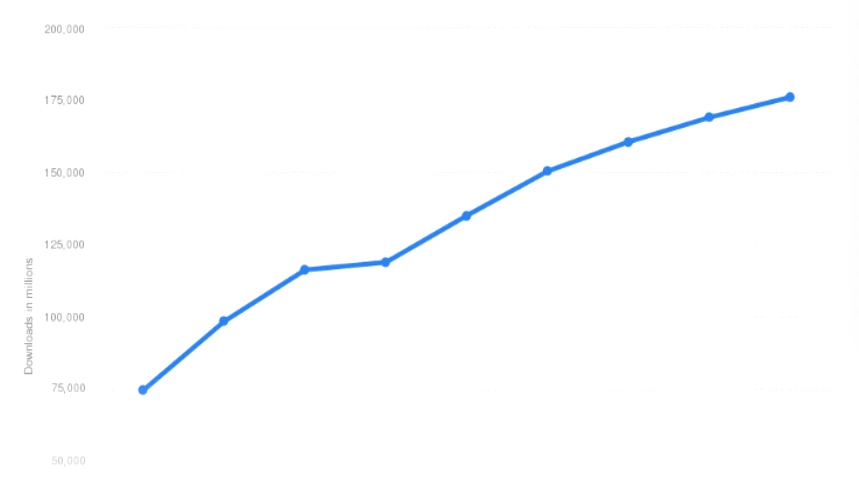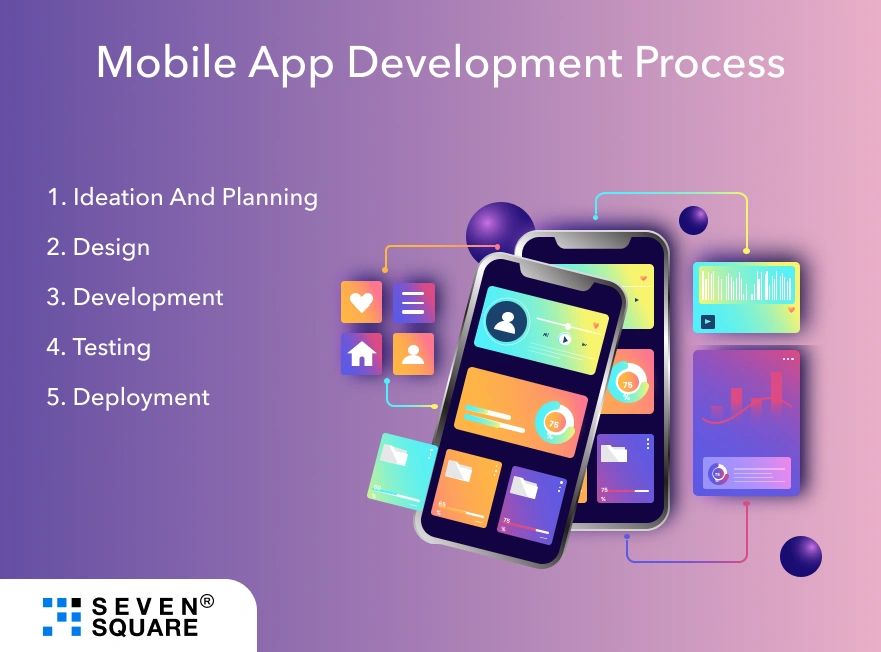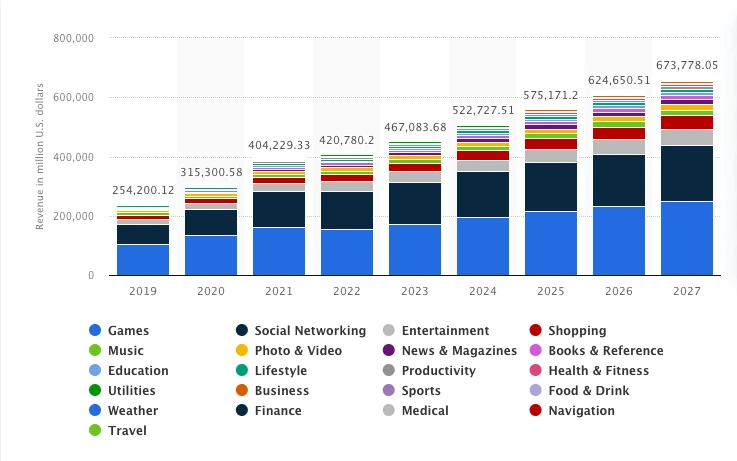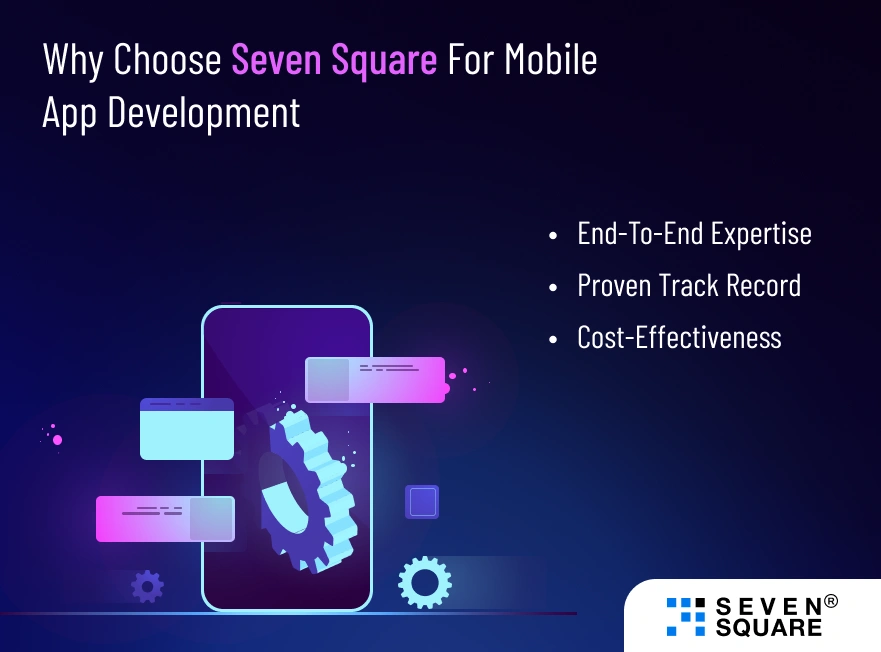Mobile apps are now a fundamental part of daily life and business operations.
With the global app market projected to reach $935 billion by 2025, the demand for mobile apps is skyrocketing. If you’re a business owner, developer, or entrepreneur, understanding the mobile app development process is key to staying competitive in the digital age.
In this guide, we’ll cover every aspect of mobile app development, from the basic concept to creating a successful app and keeping it running smoothly.
What Is Mobile App Development?
Mobile app development refers to the process of designing and building software applications for mobile devices, such as smartphones and tablets. These apps can be pre-installed or downloaded from platforms like Google Play and the Apple App Store.
Mobile apps can be developed in various formats, including:
- Native apps : Designed for specific operating systems like iOS or Android.
- Web apps : Mobile-friendly websites that look and function like apps.
- Hybrid apps : A combination of native and web apps, developed using frameworks like React Native or Flutter.
The Growing Demand for Mobile Apps
- Statistics show that there are currently over 6.8 billion smartphone users worldwide.
- By 2025, mobile apps are projected to generate over $935 billion in revenue through app stores and in-app advertising.
- Industries like eCommerce, healthcare, education, and entertainment are driving the demand for mobile apps.
The Role of Mobile Apps in Digital Transformation
Mobile apps have become essential in helping businesses transform digitally. They enhance customer engagement, streamline operations, and offer personalized experiences.
For example, apps like Amazon and Uber have redefined eCommerce and transportation by leveraging mobile-first approaches.
Types of Mobile Apps
- Native Apps : Built specifically for a particular platform (iOS or Android) using platform-specific languages like Swift or Kotlin.
- Web Apps : Apps that run in a web browser and behave similarly to native apps but do not need installation.
- Hybrid Apps : A combination of web and native apps, developed using technologies like React Native or Flutter.

Mobile app downloads – Source: Statista
The Mobile App Development Process

Creating a mobile app involves several stages. Let’s dive into the step-by-step process of developing an app.
1. Ideation and Planning :
The first step is defining your app’s purpose, goals, and target audience. Ask yourself questions like:
- Who will use this app?
- What problem does it solve?
- How does it stand out from competitors?
Once your idea is clear, conduct market research to validate it. This helps in identifying the needs of your users and the gap in the market that your app will fill.
2. Design: Wireframes and Prototyping :
Before development begins, you need to create wireframes. These are visual layouts that outline how the app will function. Once wireframes are approved, you can create prototypes to provide a closer look at how the final app will behave.
Prototyping allows you to:
- Visualize user flows.
- Test usability.
- Receive feedback before moving forward with full development.
3. Development :
Mobile app development is split into two parts:
- Front-end development : This is what users interact with, including visuals, layouts, and navigation.
- Back-end development : This involves the server, databases, and APIs that manage data and ensure the app runs smoothly.
Developers may opt for native development (iOS or Android) or cross-platform frameworks like Flutter or React Native for hybrid apps.
4. Testing :
Testing is essential to ensure your app functions properly. Various types of testing are performed, including:
- Functional testing : Ensures all app features work as expected.
- Usability testing : Checks whether the app is user-friendly.
- Security testing : Identifies potential vulnerabilities to protect user data.
5. Deployment :
Once testing is complete, it’s time to launch your app on platforms like the Apple App Store or Google Play. Follow each store’s guidelines to ensure your app meets quality and security standards.
Roadmap for Mobile App Development
A roadmap helps you plan the entire journey of app development. Include key milestones, such as:
- Phase 1 : Research and validation
- Phase 2 : Wireframing and design
- Phase 3 : Development and testing
- Phase 4 : Launch and marketing
Prototyping and Wireframes
Prototyping allows you to test the app’s user interface before full-scale development. Wireframes are basic blueprints showing how different parts of the app will look and function.
Mobile App Development Costs
Mobile app development costs can vary widely depending on several factors.
Factors That Affect App Development Costs
- App complexity : The more features and functionalities your app requires, the higher the cost.
- Platforms : Developing for both iOS and Android is more expensive than for just one.
- Design : Custom, high-end designs will raise costs.
- Location of the development team : Developers in North America tend to charge higher rates than those in Eastern Europe or Asia.
How Much Does It Cost to Develop a Mobile App?
On average: (info collected from sources)
- A basic app costs between $5,000 and $10,000.
- A mid-level app with more features can range from $10,000 to $20,000.
- More complex apps with advanced features like real-time messaging, GPS tracking, or integration with third-party systems can cost over $50,000.
Example:
- 1. A simple food delivery app with basic features could cost around $5,000, while an advanced eCommerce app with multiple integrations may reach $20,000.
- 2. A simple eCommerce app might cost around $7,000, while a custom healthcare app with telemedicine features could reach $50,000.
How to set Budgeting for Mobile App Development
When planning your budget, consider these key areas:
- Design (15%) : Invest in a good UI/UX design.
- Development (40%) : Allocate the largest chunk to actual coding.
- Testing and QA (20%) : Never skimp on testing.
- Maintenance (15%) : Keep a portion aside for updates and bug fixes.
- Marketing (10%) : Ensure you can promote your app effectively.

Source : Statista
Mobile App Development Platforms
Choosing the right platform is crucial to your app’s success.
Native App Development: iOS vs. Android
When it comes to native app development, you’ll need to decide whether to build for iOS or Android — or both.
- iOS : Known for its strict guidelines and higher monetization potential. iOS apps are developed using Swift or Objective-C. iOS has a more unified ecosystem, with fewer devices to support, making development faster.
- Android : More open but fragmented, with a variety of devices and screen sizes. Android apps are developed using Kotlin or Java. Android has a wider user base.
Cross-Platform Development
If you want your app to be available on both iOS and Android without building separate versions, cross-platform development is a great solution. Frameworks like React Native and Flutter allow you to write one codebase that works for both platforms, saving time and money.
Best Frameworks for Mobile App Development
- React Native : Developed by Facebook, it’s one of the most popular frameworks for building cross-platform apps.
- Flutter : Google’s UI toolkit for building natively compiled apps from a single codebase.
Each platform has its strengths, and the choice often depends on your project’s requirements.
Mobile App Design and UI/UX
Importance of UI/UX in Mobile App Success
A beautiful and intuitive app design can be the difference between success and failure. Studies show that 75% of users judge an app’s credibility based on its appearance. Poor design can lead to high uninstall rates.
Best Practices for Mobile App UI/UX Design
- Keep it simple : Too many features can overwhelm users.
- Focus on navigation : Make it easy for users to find what they need.
- Optimize for speed : Slow apps drive users away.
- Prioritize mobile responsiveness : Ensure your app adapts to different screen sizes.
Design Trends for 2024 and Beyond
- Dark mode : Users love apps that support dark mode for battery saving and eye comfort.
- Microinteractions : Small animations that provide feedback and improve the user experience.
- Minimalist design : Clean, uncluttered interfaces that focus on functionality.
Mobile App Testing and Quality Assurance (QA)
Why Testing is Crucial in Mobile App Development
- Testing ensures your app is bug-free, secure, and offers a seamless experience.
- 88% of users will uninstall an app if it has bugs or glitches, making testing a crucial step in development.
- Proper testing ensures your app works seamlessly across all devices and platforms.
Types of Mobile App Testing
- Functional Testing : Ensures that each feature works as expected.
- Usability Testing : Evaluates how easy the app is to use.
- Security Testing : Checks for vulnerabilities that could lead to data breaches.
- Performance Testing : Ensures the app works well under high loads or with limited resources.
Manual vs. Automated Testing
- Manual testing involves human interaction to find bugs, ideal for usability testing.
- Automated testing uses software tools to run repetitive tests, speeding up the process and ensuring consistency.
Best Tools for Mobile App Testing
- Appium : An open-source tool for cross-platform mobile app testing.
- TestFairy : A useful tool for getting detailed feedback and crash reports during testing.
Mobile App Security
Best Practices for Securing Mobile Apps
App security is critical, especially with rising data privacy concerns. 60% of companies report that they’ve been hacked through vulnerabilities in mobile apps.
Some best practices include:
- Encrypt sensitive data : Use encryption protocols like SSL/TLS.
- Implement secure authentication : Use multi-factor authentication (MFA) for enhanced security.
- Regular security updates : Keep your app up to date to mitigate security risks.
- OAuth or JWT : Use OAuth or JWT tokens for secure user authentication.
Common Security Risks
- Data breaches : These can occur due to weak encryption or insecure data storage.
- Insecure code : If not written properly, app code can be reverse-engineered by hackers.
- Unsecured Wi-Fi : Apps can be vulnerable if accessed through public Wi-Fi networks.
Mobile App Maintenance and Updates
Why Maintenance is Crucial
After launch, your app will need regular maintenance to stay relevant and functional.
- 60% of users will delete an app if it has issues after an update.
- Regular updates ensure compatibility with new OS versions and devices.
Handling App Updates Post-Launch
Regular updates ensure:
- Automated update testing can help reduce downtime.
- Use A/B testing for rolling out new features to a small user group before a full launch.
- Compatibility with new OS versions.
- Bug fixes and security patches.
- User-requested features.
Mobile App Monetization Strategies
Best Monetization Models
- Freemium : Users download the app for free but pay for premium features.
- In-app Advertising : Display ads in the app to generate revenue.
- Subscription models : Charge users on a recurring basis, ideal for content-heavy apps like Netflix.
- One-time purchase : Charge users a flat fee to download the app.
Case Studies of Successful App Monetization
- Spotify : The app uses a freemium model with millions of paying subscribers.
- Candy Crush : An excellent example of in-app purchases generating significant revenue.
- Netflix : Subscription-based model generating billions in revenue annually.
Why Choose Seven Square for Mobile App Development?

Nowadays, mobile apps have become a necessity and your business’s future depends upon choosing the right partner. At Seven Square, we don’t just develop apps; we create digital experiences that captivate users.
- End-to-End Expertise : From ideation to deployment, our team of experts covers every aspect of app development. Whether you’re starting with a sketch or need help scaling an existing app, we have the skills to deliver.
- Proven Track Record : Our portfolio speaks for itself. With successful projects for industries like healthcare to eCommerce, we’ve helped businesses like yours turn their ideas into apps for better engagement and revenue.
- Cost-Effectiveness : We know how important it is to manage costs without sacrificing quality. At Seven Square, we strike the perfect balance between affordability and premium results.
What Lies Ahead for Mobile App Development?
As we move further into 2025, trends like AI, AR/VR, 5G, and blockchain are set to reshape mobile app development. Staying ahead of these emerging trends will help businesses create apps that not only engage users but also remain secure, scalable, and future-proof.
Understanding the full mobile app development process — from ideation to deployment and maintenance — is the key to creating apps that thrive in today’s highly competitive digital world.
By choosing the right development approach, testing rigorously, and optimizing for user experience, your app will stand the best chance of success.
Do you want a mobile application for your business? Now!
FAQs
- There are popular languages like Swift and Objective-C for iOS, Kotlin and Java for Android, and Dart (used in Flutter) for cross-platform apps.
- These programming languages are known for providing high performance, reliability, and best user experiences.
- It depends on your requirements, Native apps (iOS, Android) provide the best performance and user experience.
- Cross-platform options like Flutter and React Native are cost-effective and ideal for apps targeting various platforms.
- UI/UX design ensures that the app is attractive, easy to use, and meets user needs. A well-designed app helps to improve engagement, retention rates, and overall customer satisfaction.
- App maintenance includes updates, bug fixes, and performance improvements to keep the app updated. It is important for adapting user feedback, OS updates, and market demands.
- The mobile app development cost depends upon the complexity, features, and development region. But it can start from $5000 and go more than $50,000.